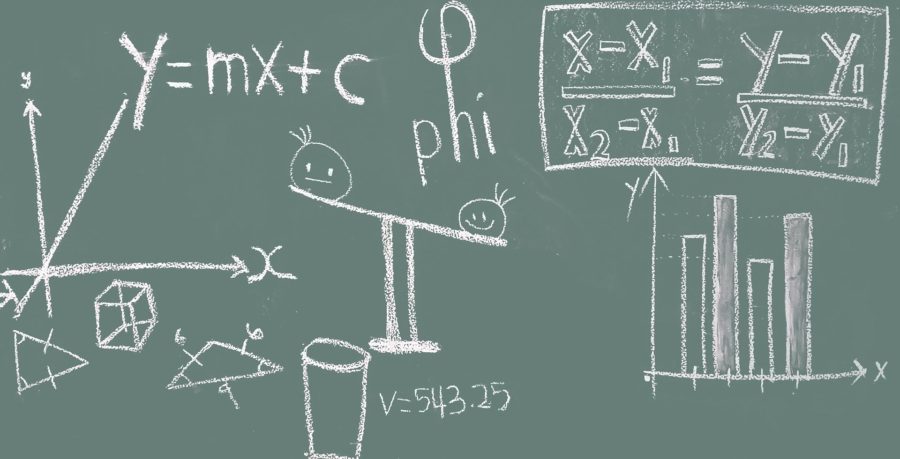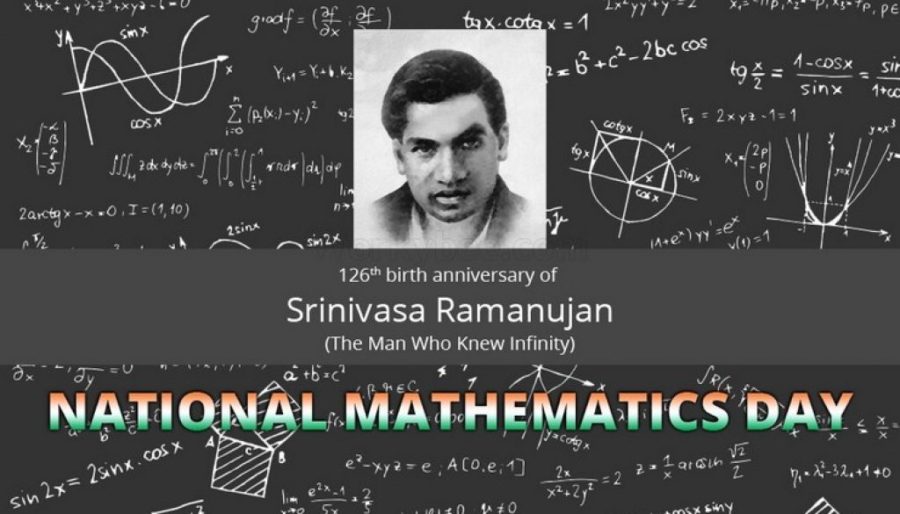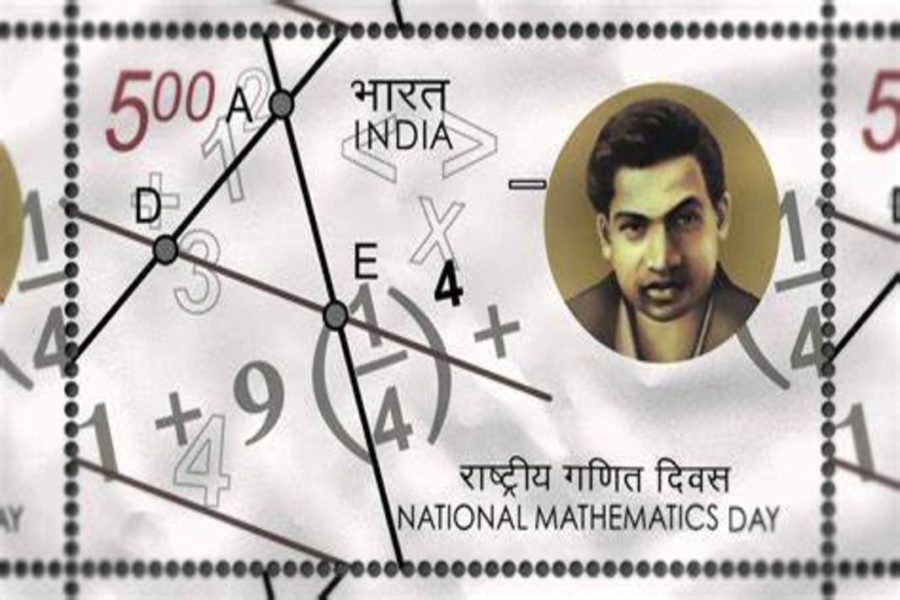As we are aware that many scholars, such as Aryabhata, Brahmagupta, Mahavira, Bhaskara II, Srinivasa Ramanujan, etc, made valuable mathematical contributions since ancient times. National Mathematics Day is celebrated every year on 22 December to commemorate the birth of the famous Indian mathematician, Srinivasa Ramanujan. In his early days, Srinivasa Ramanujan displayed the signs of a generous genius and set an example in mathematics in his contributions to fractions, number theory, mathematical analysis, etc. Read on to know the history, significance of National Mathematics Day 2020.
When Is National Mathematics Day?
National Mathematics Day has been celebrated since December 22, 2012.
History of National Mathematics Day
On the occasion of his 125th birthday in Chennai on 22 December 2012, Dr. Manmohan Singh of India’s former Prime Minister paid tribute to Srinivasa Ramanujan for his work in the mathematical field. The National Mathematics Day was started in Chennai.
Importance of National Mathematics Day
The key aim of the celebration is to make people more conscious of the value of mathematics for humanity’s progress. We cannot ignore the fact that many steps are taken to inspire, enthuse, and empower the younger generation of the world towards a better attitude towards mathematics. On this day, the mathematics teachers and students are also trained in camps and emphasize the creation and production of the learning material (TLM) in the field of mathematics and study in related fields.

Image Source- Pixabay
How Is National Mathematics Day Celebrated?
National Mathematics Day information is not limited to the date of celebration only. The day is observed in many ways in India. The following are several ways to celebrate the day:
- The day takes place through different steps, interventions to educate students in math, and the promotion of awareness, in schools, colleges, universities, and other educational institutions.
- UNESCO and India collaborate together to disseminate more knowledge on comprehension and learning of mathematics.
- A two-day workshop is organized on maths and Ramanujan by the National Academy of Science, India, the older science academy located in Allahabad.
- The contribution of Srinivasa Ramanujan in Mathematics is addressed by speakers from around the country and the world.
- The workshop also addresses India’s contribution to Vedic mathematics.
- Quizzes and mathematics workshops are held around a variety of schools in India to get children to engage and develop their skills.

Image Source – manavrachna.edu.in
Facts About Srinivasa Ramanujan
Srinivasa Ramanujan, the genius of the 18th and 19th centuries was considered equivalent to Euler and Jacobi. Born in the conventional Tamil Brahmin household, he gave a whole new connotation to mathematics. His dad was a clerk in a sari shop and a singer in an old temple with his mother. Their earnings were meager, and they barely managed to carry Ramanujan up with a lot of ease. He also collected 4000 mathematical equations and findings, including the theory of numbers, fractions which paved a way for mathematical research.
He was fascinated with mathematics and did not secure a bursary at Kumbakonam’s Government Arts College, as other subjects struggled to do. His key source of inspiration was “GS Carr’s synopsis of basic results in pure mathematics.” His upbringing was modest and he lived with the poorest in ways. This did not, however, function as a disincentive for him to pursue his passion and love. Some fascinating facts about the genius:
- At the age of ten, Ramanujan solved the usual mathematical problems without any formal preparation. He was a voracious mathematics reader who established his knowledge of the topic and the tricks involved in solving the problem. He had an infinite recollection of mathematical formulas, phrases, and constants. Loeny’s Trigo exercises were carried out without any assistance by Ramanujan.
- He was a loner at school because he was barely heard by his classmates and was fascinated by his mathematical acumen.
- He did not obtain a diploma because he could not pass his other subjects, even though he excelled in mathematics.
- At the young age of 12 years, Ramanujan was married to the then ten-year-old Janaki.
As the paper was costly, Ramanajun used a slate to document the effects of his derivatives. His first article was published in 1911 in the Journal of the Indian Mathematical Society. - In 1914, Ramanujan moved to England in 1914, where Hardy, with whom he worked for some research, tutored him. The number 1729 is well known as the Hardy-Ramanujan number after Ramanajun solved the mystery of Hardy’s number when he went to see him at the hospital.
- Ramanujan was the first Indian to be chosen as a Trinity College Fellow in Cambridge. He was the second Indian to be given a fellowship at the Royal Society.
- Ramanujan developed his own theory of divergent series, hypergeometry series, functional zeta function equations, and theory.
- Ramanujan died at 32 years of age due to hepatic amoebiasis. He had dysentery and vitamin deficiency.
- In Chennai, Tamil Nadu, there is a museum devoted to Srinivasa Ramanujan.
Quotes On National Mathematics Day
- “Pure mathematics is, in its way, the poetry of logical ideas.” -Albert Einstein
- “Arithmetic is where numbers fly like pigeons in and out of your head.” -Carl Sandburg
- “Mathematics is the most beautiful and most powerful creation of the human spirit.” -Stefan Banach
- “If there is a 50-50 chance that something can go wrong, then 9 times out of ten it will.” -Paul Harvey
- “A mathematician is a blind man in a dark room looking for a black cat which isn’t there.” – Charles Darwin
- “Mathematics is a game played according to certain simple rules with meaningless marks on paper.” -David Hilbert
- “Nature is written in mathematical language.” -Galileo Galilei
- ‘Obvious’ is the most dangerous word in mathematics.” -Eric Temple Bell
- “There should be no such thing as boring mathematics.” -Edsger W. Dijkstra
- “Since the mathematicians have invaded the theory of relativity, I do not understand it myself anymore.” -Albert Einstein
- “Without mathematics, there’s nothing you can do. Everything around you is mathematics. Everything around you is numbers.” – Shakuntala Devi
Indeed, Ramanujan was born to honor creativity. Recently a biopic was made of the Man who Knew Infinity with Dev Patel. He is really acknowledged and considered to be a genius, who has transformed the mathematics definition and opened a whole new universe of paths. Mathematics Day is celebrated to help and nurture the passion and the commitment to the splendid heritage of Indian mathematics.
Also Read: How To Make Maths Fun For Kids













